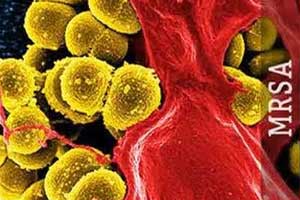- Home
- Editorial
- News
- Practice Guidelines
- Anesthesiology Guidelines
- Cancer Guidelines
- Cardiac Sciences Guidelines
- Critical Care Guidelines
- Dentistry Guidelines
- Dermatology Guidelines
- Diabetes and Endo Guidelines
- Diagnostics Guidelines
- ENT Guidelines
- Featured Practice Guidelines
- Gastroenterology Guidelines
- Geriatrics Guidelines
- Medicine Guidelines
- Nephrology Guidelines
- Neurosciences Guidelines
- Obs and Gynae Guidelines
- Ophthalmology Guidelines
- Orthopaedics Guidelines
- Paediatrics Guidelines
- Psychiatry Guidelines
- Pulmonology Guidelines
- Radiology Guidelines
- Surgery Guidelines
- Urology Guidelines
Declare ‘penicillin allergy’ after double check to avoid drug resistance- NICE

NICE has issued a warning for those people who incorrectly believe they are allergic to penicillin as such misconception may unnecessarily put them at an increased risk of developing MRSA or C difficile.
Nice has also urged the clinicians to ensure that only people with a true allergy to penicillin are documented as such. Incorrectly identifying people as allergic could also contribute to antimicrobial resistance, as these people are likely to instead be given broad-spectrum antibiotics.
Speciality Medical Dialogues has previously reported this issue based on research conducted in the UK and published in the BMJ in June 2018 that the patients allergic to penicillin are at increased risk for Clostridium difficile and methicillin-resistant Staphylococcus aureus (MRSA) infections mediated by the increased use of β lactam alternative antibiotics.
Key Findings of the study:
- During 6 years’ follow-up, 70% of patients with penicillin allergy developed an MRSA infection.
- They are also around 25% more likely to develop C difficile, a bacteria that generally causes diarrhea.
- Among patients with penicillin allergy, the adjusted hazard ratio for MRSA was 1.69.
- The study highlights previous evidence that around 10% of the UK population has a penicillin allergy documented in their clinical notes, but that only around 5% of these people actually have a ‘true’ penicillin allergy.
Read Also: MRSA blood infections are less fatal in kids, but cause significant complications
The findings outline the need for healthcare staff to check that only bona fide penicillin allergies are recorded, in line with NICE recommendations on suspected allergy to Beta-Iactam antibiotics, which form part of NICE guideline ‘Drug allergy: diagnosis and management’.
For reference log on to NICE

Disclaimer: This site is primarily intended for healthcare professionals. Any content/information on this website does not replace the advice of medical and/or health professionals and should not be construed as medical/diagnostic advice/endorsement or prescription. Use of this site is subject to our terms of use, privacy policy, advertisement policy. © 2020 Minerva Medical Treatment Pvt Ltd